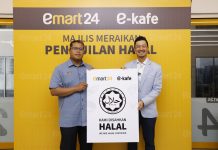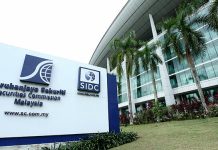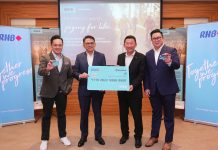KPMG in Singapore (KPMG) has launched a strategic guide, “Advancing Digital Sustainable Talent for the Future,” to assist local businesses in developing a digitally skilled workforce while integrating sustainability into their core operations.
Developed with input from the Infocomm Media Development Authority of Singapore (IMDA) and the Singapore Computer Society (SCS) Sustainable Tech SIG, the guide aligns closely with national priorities such as the Forward Singapore exercise and the Singapore Green Plan 2030.
The guide acknowledges that many businesses already possess essential digital talent, such as AI specialists and software developers, and provides actionable strategies to upskill this workforce for the evolving technological landscape.
It strongly advocates for a “Green by Design” approach, where sustainability is embedded into business operations and workforce strategies from the outset, rather than being an afterthought.
This comprehensive guide equips businesses with insights to plan ahead, offering an analysis of the current landscape, guidance on integrating sustainability into business strategies, and actionable recommendations to address both digital and green priorities.
It supports Singapore’s vision of fostering a skilled workforce capable of leveraging AI to drive sustainable innovation and long-term economic resilience.
Lyon Poh, Partner and Head of Corporate Transformation at KPMG in Singapore, remarked, “The green transition presents a significant strategic shift for Singaporean businesses. To thrive, companies must integrate sustainability not as an afterthought, but as a cornerstone for innovation and growth.
“By re-evaluating the mindsets and skillsets of their existing workforce, leveraging digital talent to drive green innovation, and aligning with national frameworks like the Green Plan 2030, businesses can transform challenges into opportunities.
“Practical steps include investing in energy-efficient technologies, redesigning operations for circularity, and fostering cross-sector collaborations to scale impactful solutions. Singapore’s robust policy environment and tech-savvy workforce uniquely position it to lead in this space, creating economic value while ensuring long-term resilience.
“Businesses that act decisively now will not only gain a competitive edge but also contribute significantly to Singapore’s sustainable growth narrative.”
Joey Tan, Chairman, SCS Sustainable Tech SIG, stated: “For a successful sustainability transformation, practitioners require a blend of specialised knowledge and multidisciplinary skill sets. Green skills, including those related to green software, are crucial for building a sustainable future and supporting Singapore’s transition to a resource-efficient society.”
Strategic Guide Overview – Driving Green Transformation
The guide outlines four key focus areas to assist businesses in integrating digital and green priorities:
-
Landscape Analysis: Examines Singapore’s digital and green initiatives while addressing global commitments such as the Paris Agreement and Sustainable Development Goals. Identifies workforce gaps and proposes tailored solutions to enhance alignment between talent development and sustainability strategies.
-
“Green by Design” Principles: Inspired by Singapore’s “Secure by Design” framework, these principles advocate for embedding eco-conscious practices early in procurement, systems development, and operations, ensuring sustainability underpins all processes.
-
Digital Talent Roadmap: Offers a clear framework for businesses to upskill existing digital roles with emerging green competencies. For instance, software engineers can optimise algorithms for energy efficiency, while network specialists can design sustainable systems. This roadmap is designed to complement Singapore’s Skills Frameworks.
-
Recommendations for Businesses: Practical steps include fostering a culture of green innovation to gain a competitive advantage, advancing cross-sector collaborations to scale sustainable solutions, and aligning processes with national initiatives like the Singapore Green Plan 2030.
Strategic Imperatives for Businesses
To seize the opportunities presented by the green economy and AI, Singaporean businesses must take decisive action. Key imperatives include:
- Embedding Sustainability Across Functions: Integrate sustainability as a guiding principle across all departments to identify opportunities for performance improvement, rather than treating it as mere compliance.
- Investing in Green Innovation: Commit resources to sustainable R&D and foster a culture of eco-friendly problem-solving at all levels.
- Uplifting and Leveraging Talent: Fully utilise current talent by embedding green mindsets and skillsets into digital roles, ensuring employees possess the expertise to lead this transformation.
- Leading with Purpose: Purpose-driven organisations that align profitability with social responsibility will differentiate themselves in this unprecedented economic shift.
A Wider Economic and Social Vision
The green economy has far-reaching implications. Its benefits include:
- Economic Evolution: Industries such as renewable energy, green logistics, and low-carbon technologies are poised to expand, creating opportunities for market growth and adaptation.
- Global Competitiveness: Nations and businesses adopting innovative sustainability practices will lead in setting benchmarks for global operations.
- Social Equity: A green transition opens up new pathways of inclusivity, enabling diverse talents to play a role in shaping the global economy.
A Call to Action
The guide emphasises that the challenges presented by the green transition offer unprecedented opportunities for growth and leadership. By upskilling workforces, embedding Green by Design methodologies, and leveraging existing digital capabilities, businesses can maintain competitiveness and contribute meaningfully to national and global sustainability goals.
KPMG’s strategic guide provides a roadmap to assist enterprises in leading the green transition by making sustainability a core pillar of their operations and talent strategies. Download the guide here to take the first step in driving innovation while building a sustainable future.

























